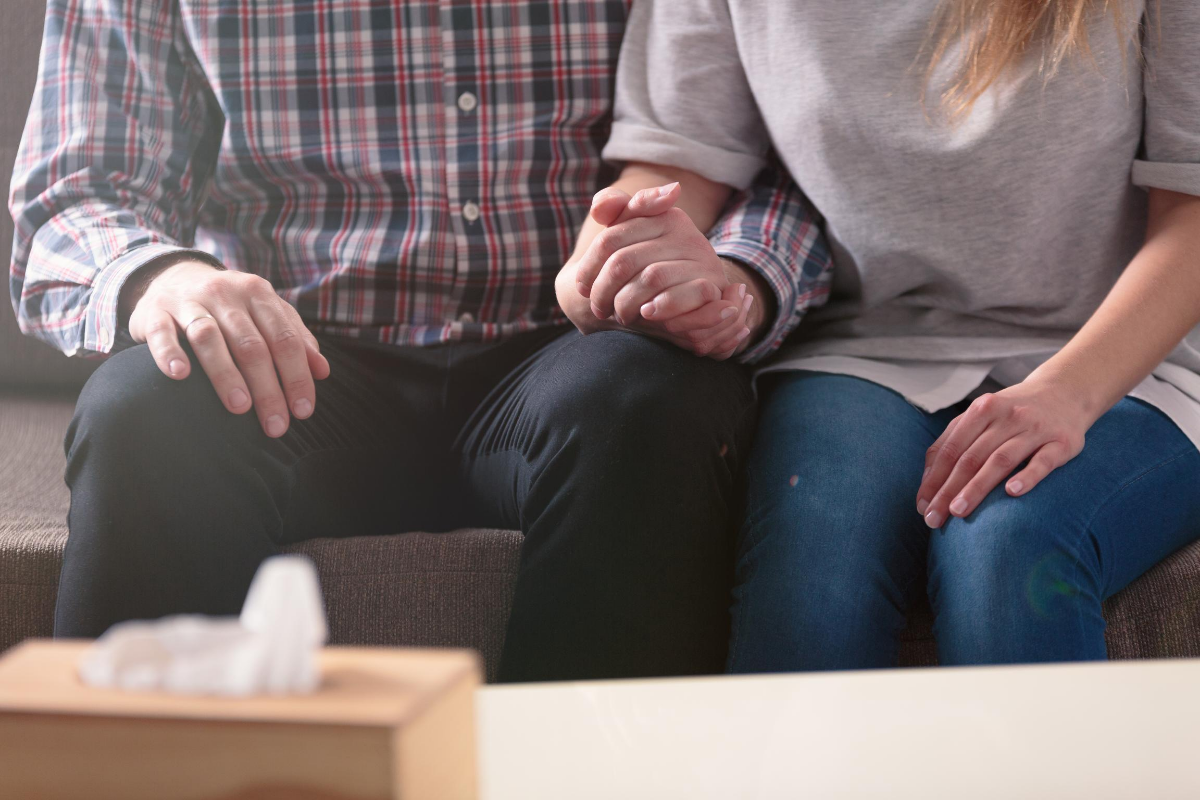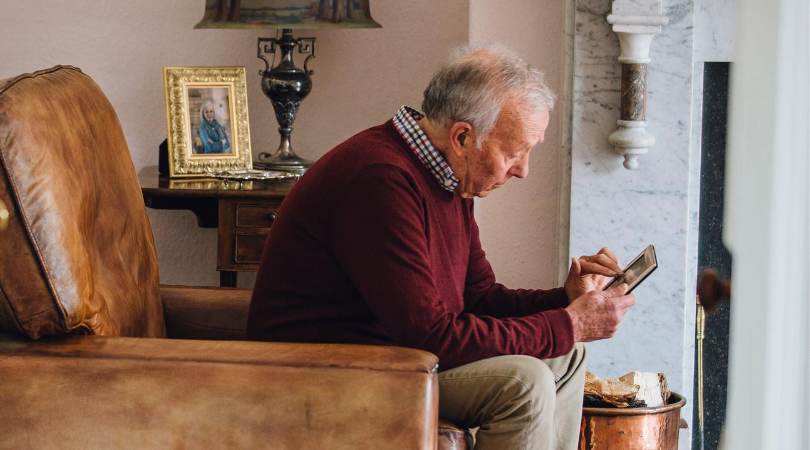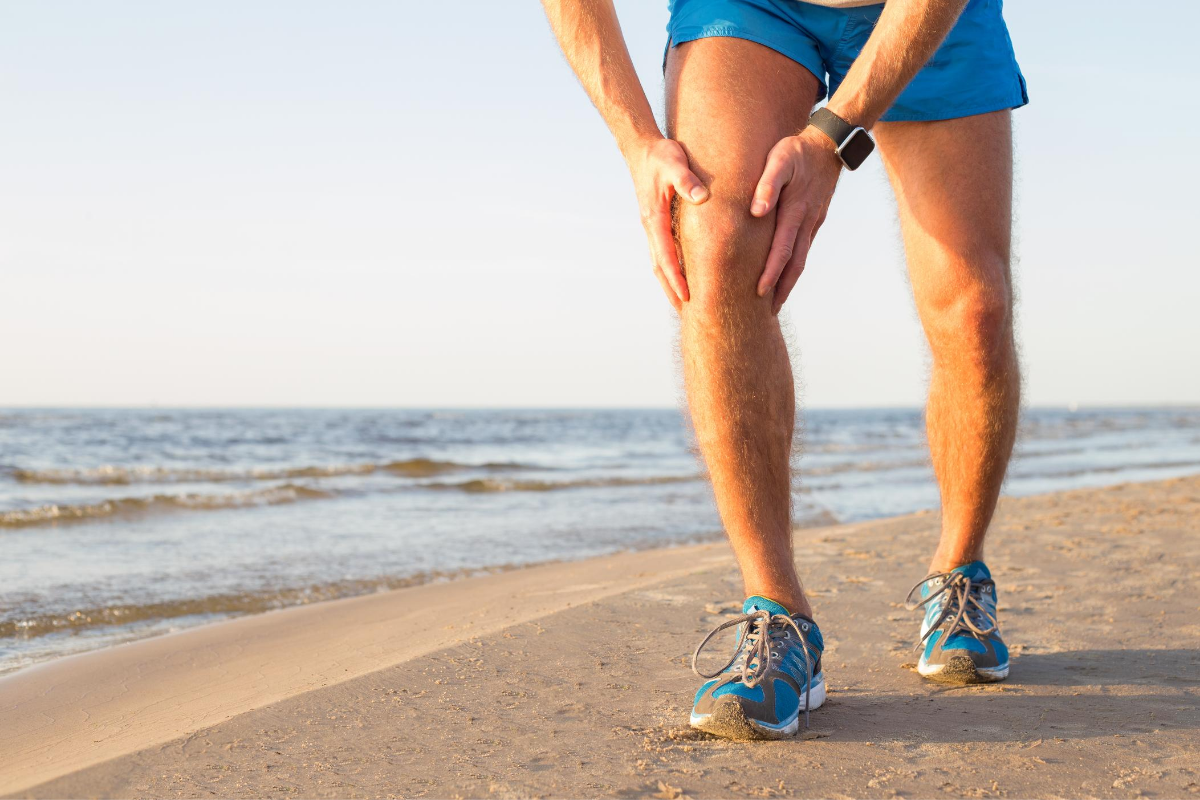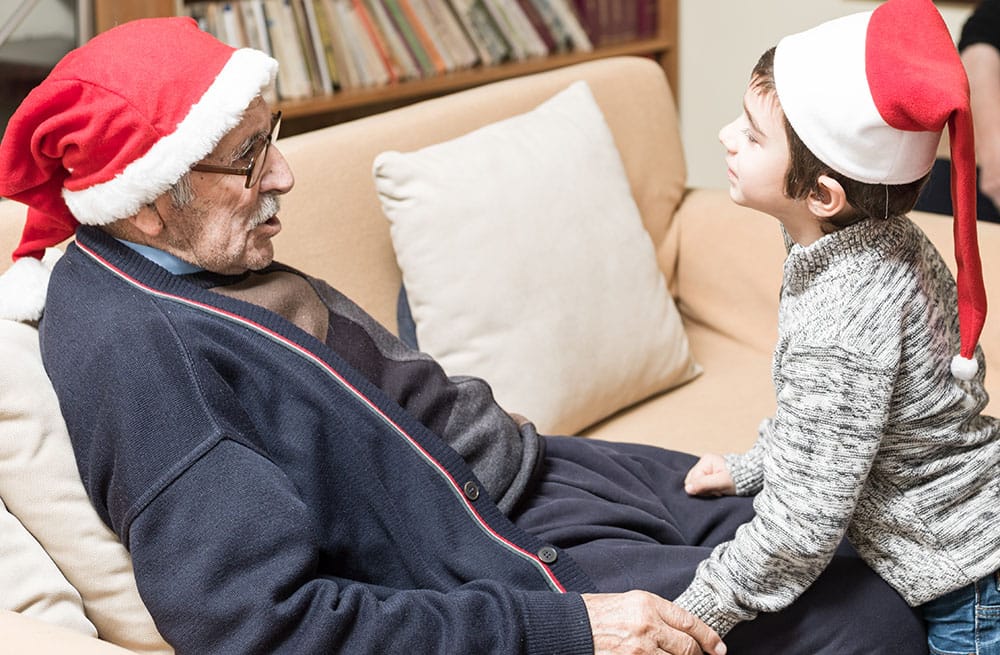Exploring the Grief Recovery Method

The Grief Recovery Method is an evidence-based, action-oriented grief program that helps people move through the pain of loss. For thirteen years as a bereavement coordinator with Crossroads Hospice & Palliative Care, I have witnessed exceptional transformations with hundreds of grievers while facilitating the Grief Recovery Method program.
No one wants to be in pain. Those dealing with grief are no exception. Many will fight to keep their true emotions from reaching the surface. While they may occasionally dip into the fire of their pain, they'll find it too difficult to address. As a result, they’ll refrain from dipping back in.
This coincides with what we’ve traditionally been taught to do after a loss. We’re taught to be strong. We’re taught to minimize our feelings, keep busy, try to replace the loss, or grieve alone. These are all things that keep the pain bottled up. They may appear to work in the short term. But most times, these actions are not long-term solutions because they distract us from addressing the true cause of the pain: the loss itself.

Does time heal all wounds?
The old adage that “time heals all wounds” is simply not true. Yes, you probably will function better as time goes on. Yes, the rawness may dissipate. But you are often still left feeling pain within.
Time itself will not heal the deep pain caused by your loss, but what you do with that time will help you work through it. You have to make the choice to address it. You have to make the choice to want to heal.
Imagine you tear the ACL in your right knee.
“Time heals,” you say. “I’ll just be strong.”
You choose to do nothing to address the tear. You decide to let time pass because “you’ll just get through it.” Two years later, you’re left with a damaged leg, leaving you unable to stand, walk, or move without assistance. You are in constant pain. You can no longer drive or dance. You have difficulty sustaining your relationships because of the physical, mental, and emotional toll the injury has caused. Everything about your life has changed.
So what should you have done about the torn ACL? Addressed the injury by going to a doctor, undergoing surgery, and engaging in rigorous rehabilitation – regardless of how difficult or daunting it may have seemed. At some point, you’ll be able to walk again. That doesn’t mean you won’t still feel weakness or pain from time to time. But the stronger you get, the better you’ll feel.
In the first scenario, you let time pass with no actions and your leg got worse. In the second scenario, you took specific actions to address the injury, which propelled you forward to healing. Time didn’t heal your leg. What you did with the time healed it.

What is the Grief Recovery Method?
When you deal with a significant loss, you suffer an emotional break of your heart. The actions of the Grief Recovery Method will teach you how to reset that break. They don’t heal you automatically, but they provide the parameters for healing to begin. Just like a surgeon doesn’t instantly heal a torn ACL by performing surgery, they set the stage for your leg to begin the healing process.
Is your heart in need of healing? Ask yourself the following questions to find out:
- What do you wish you had said or not said to the deceased?
- What do you wish you had done or not done to the deceased?
- What do you wish the deceased had said to you or not said to you?
- What do you wish the deceased had done for you or not done to you?
- What do you wish had been different in a situation or relationship?
- What do you wish had been better in a situation or relationship?
- What do you wish you still had more of to share in a situation or relationship?
- How has this loss impacted your dreams and expectations for the future?
Remember that you will have to make a choice between holding on and avoiding painful feelings or letting go and working through painful feelings. The actions taken in the Grief Recovery Method healing process can help guide you. But it all begins with making the choice to work through it.
Mike Strick, MA
Bereavement Coordinator
Crossroads Hospice & Palliative Care
To learn more about the Grief Recovery Method at Crossroads, please call 1-888-564-3405.
If you found this information helpful, please share it with your network and community.
Copyright © 2020 Crossroads Hospice & Palliative Care. All rights reserved.



